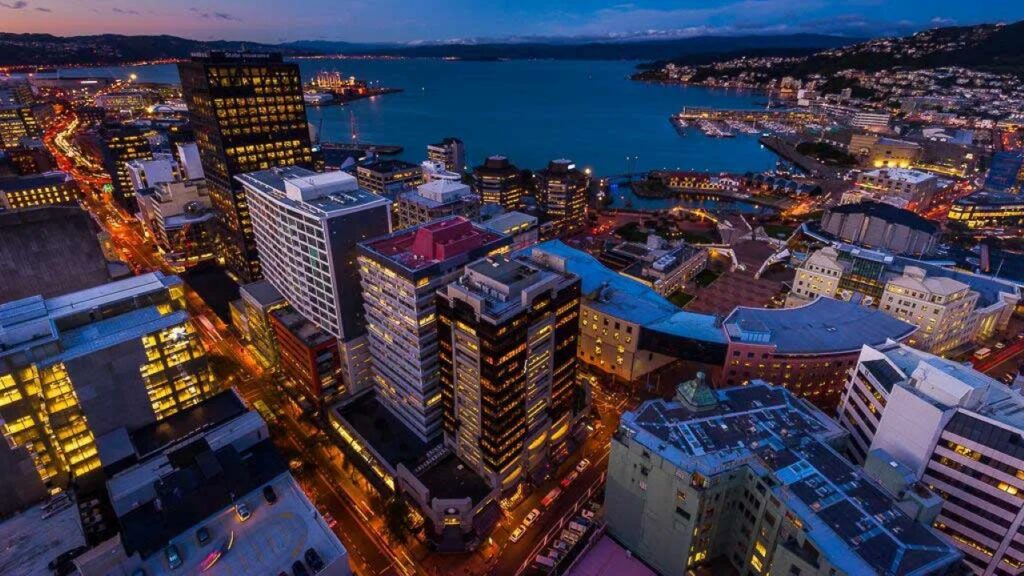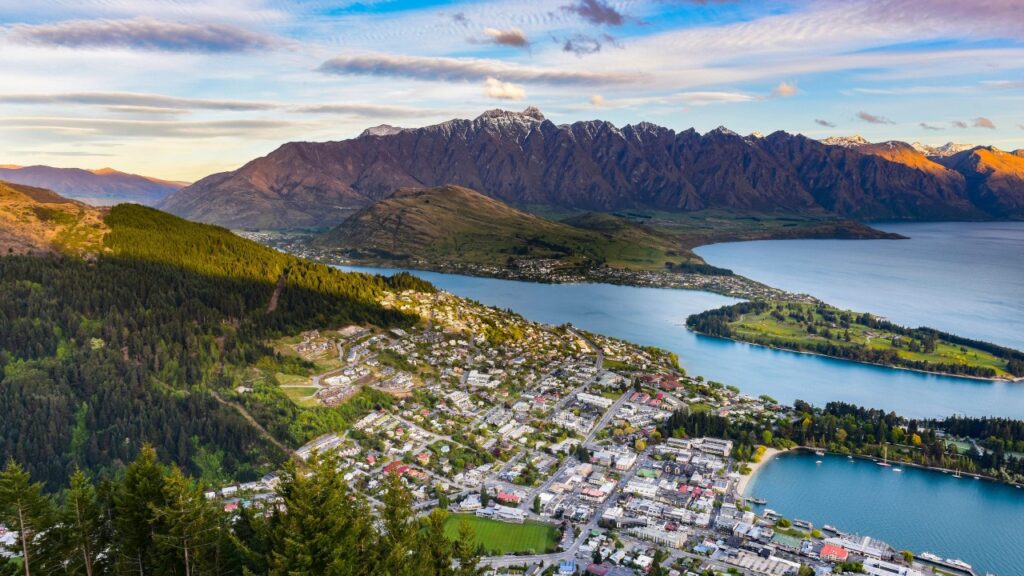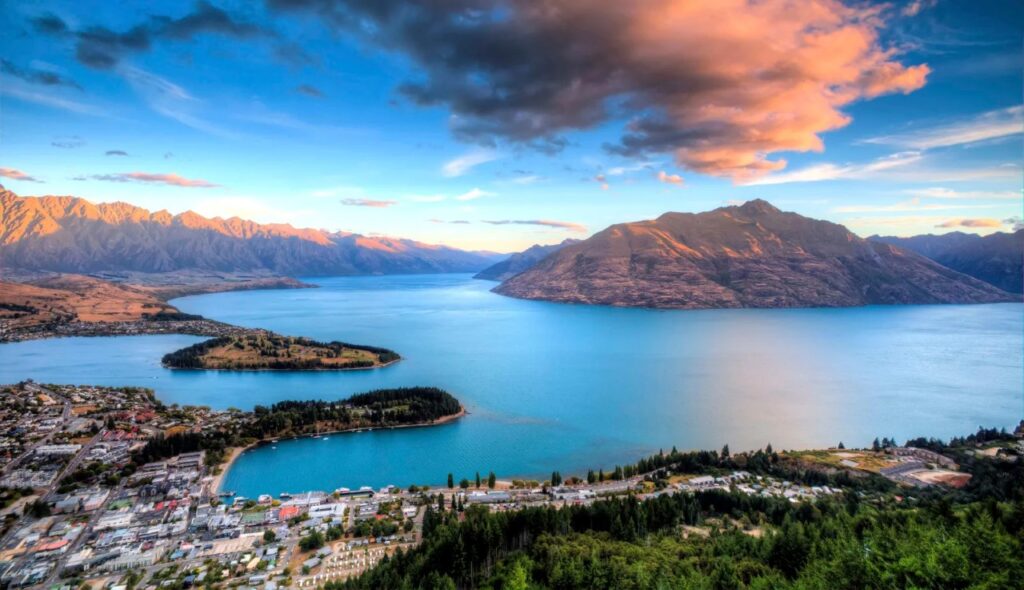Relocating to New Zealand, the Land of the Long White Cloud is an exciting adventure brimming with opportunities and challenges. If New Zealand is your upcoming destination, then rely on this comprehensive guide authored by Woburn International Group, the pre-eminent Immigration Advisory and Relocation company in New Zealand and a proud partner of Reloc8 Asia Pacific Group.
New Zealand, renowned for its breathtaking landscapes, rich cultural heritage, and welcoming locals, offers a harmonious blend of traditional and contemporary lifestyles. Whether you’re captivated by the vibrant urban atmosphere of Auckland, the pristine beaches of Wellington, or the landscapes of Queenstown, our guide covers essential aspects such as the cost of living, the healthcare system, education options, and visa requirements.
Embark on your journey to making New Zealand your new home with confidence and ease, guided by the wealth of experience and professionalism offered by the Woburn International Group team. For more information, visit the website at https://woburn.co.nz.
SECTION 1: UNDERSTANDING THE BASICS
What It’s Like to Live in New Zealand

Living in New Zealand is a way of life that is really easy, and most people enjoy the great outdoors in some form or another. You may live in the city, but you do not have to travel very far to reach the beaches, mountains, or rivers. This alone promotes a very healthy way of life. We do not live to work! If you like the outdoor life, this is an adventure playground. No wildlife to kill you – we have no snakes.
New Zealanders are generally very welcoming and interested in learning about other cultures.
Queuing is not common.
When invited out to someone’s home, a small gift is taken by the guest, e.g., flowers, chocolates, or wine.
Cultural Differences
As we are a small nation, we are not terribly class-conscious, and things are much the same no matter what you do for a job. New Zealand is an egalitarian country with equal opportunities for everyone, regardless of background.
Languages
Three key languages: English, Maori (from 1987), and New Zealand Sign Language from April 2006.
English is the most commonly spoken language. The Maori language is a central component of Maori culture and an important aspect of participation and identity. All children are taught Maori in school.
Economy and Job Market
The job market in New Zealand is very buoyant, and there are many opportunities for those who are prepared to work. There is a shortage of highly qualified people, especially in the health system. The NZ Government has created a special job priority skill shortage list, enabling easier access to NZ Residence. Entrepreneurs and investors are welcomed, provided they meet our immigration requirements.
SECTION 2: COST OF LIVING AND LIFESTYLE

Cost of Living
The cost of living in New Zealand is very high in comparison to other countries, which tends to astonish expats. The cost of housing, petrol, and electricity is very expensive.
Lifestyle
The lifestyle in New Zealand can be described as a very casual and relaxed way of life.
Healthcare Services
The standard of healthcare, due to healthcare shortages and medicines, has declined. If an individual has a serious health condition, consideration should be given to traveling out of NZ for medical treatment. NZ has huge waiting lists for public treatment. Most of our doctors and nurses are migrants from other countries. Coming to New Zealand, you should have private healthcare, which is very expensive. Waiting times for elective surgery are far too long.
Educational System
The education system here has slipped back over the past six years; however, this has been recognized, and we are now in a phase of rebuilding this. New Zealand has 8 universities, which feature in the top 500 world universities, with Auckland University ranking at position 68.
SECTION 3: LEGAL AND IMMIGRATION ASPECTS
Legal Considerations When Moving to New Zealand
When moving to New Zealand, you must have a job offer from an Accredited Employer, and therefore, you must meet Immigration NZ requirements and hold an appropriate visa to stay. Also, you must be of good health and character.
Process of Acquiring Work Visas for Professionals and Their Families
New Zealand is led by a new government that is very business-minded, but it is a system where that is very difficult to navigate without the aid of specialist people. The assignee must be qualified with both work experience and qualifications and have a job offer from an NZ-accredited employer. There are various pathways for acquiring a work visa.
Processes for Setting Up a New Business or a Branch of an Existing Company
For setting up a new business or a branch of an existing company, you must have a NZ Director who is a NZ Resident or Citizen. The company needs to register with the NZ Companies Office. The name of the company must be accepted by the NZ Companies Office.
Requirements for Permanent Residency or Citizenship
Permanent Residence is obtained through a job being on the skilled shortage list, and the applicant must have held NZ Residence for 2 years before applying for Permanent Residence. The principal applicant must be under 55 years of age. For investors, the age requirement is not applicable, but they must be of good health and character.
Citizenship is obtained after having held NZ Residence for 5 years, along with a presence in NZ of at least 240 days in every 12 months and 1,350 days across the 5 years.

SECTION 4: BUSINESS CULTURE AND WORK ETHIC
Work Culture
New Zealanders are hardworking, but there is an apparent trend for the younger group of Generation Z to be less committed to this aspect.
Business Customs
- Business customs in New Zealand are generally informal with first-name terms.
- People are friendly.
- Employees like to be involved and asked for their input and are encouraged to do so.
- Hierarchy/superiors are not overpowering.
- Meetings generally commence with small talk.
- Work hours are generally 8.30 am – 5 pm, but flexible time is seen in many companies.
- There is a strong belief in equal opportunity.
- NZ style is non-confrontational.
- Greeting people in NZ requires acknowledgment.
- Please and thank you are very important to use.
Typical Workday and Work Week
A typical week means that you may go to the office for some days during the week and then work from home for the rest of the week. We do not generally work weekends, although most shops, restaurants, and cafes are open on the weekend, staffed by owners, those on working holiday visas, and people who want to work weekends.
Tips for Making Good Business Relationships
- Find common interests, build trust, and deliver on what you say.
- You operate in a team environment.
- Avoid personal questions.
- Never criticize a person in public.
- Personal hygiene is very important.
SECTION 5: HOUSING AND ACCOMMODATION
Commonly Available Accommodation
Temporary accommodation: Mainly serviced apartments, hotels, and Airbnb.
Long Term: Flat-share agreements (sharing accommodation with other people), apartments, and houses.
Housing Prices Across Different Regions
Auckland:
Houses
Furnished House: In expatriate areas, depending on the number of bedroom requirements, NZ$1500 per week – $2000 per week.
Unfurnished: NZ$1000 – NZ$1500 per week.
Apartments
Fully furnished 1 – 2 bedrooms: NZ$1200 – NZ$1500 per week in a good area
Unfurnished 1 – 2 bedrooms: NZ$900 – NZ$1200 per week
Wellington:
Houses
Fully furnished: NZ$1300 – NZ$1600 per week
Unfurnished: NZ$1000 – NZ$1300 per week
Apartments
Furnished: NZ $900 – NZ$1200 per week
Unfurnished: NZ$800 – NZ$1000 per week
Christchurch:
House
Fully furnished: NZ $800 – NZ$1200 per week
Unfurnished: NZ$700 – NZ$900 per week
Apartments
Furnished: NZ $800 – NZ$1000 per week
Unfurnished: NZ$750 – NZ$900 per week
Key Considerations When Searching for Housing
- Easy access to public transport.
- Wellington (capital city) has the best public transport system.
- Pets are accepted with the landlord’s approval.
- Location of the property: Schooling is a key consideration, as the assignee must rent in the area of the chosen school zone – this is a key consideration.
- Apartment living – Are car parks included in rent and/or is a car park available?
- Location of supermarkets, cafes, and restaurants.
- Safety and security of apartment buildings.
- Communities relevant to their nationality.
Process of Purchasing a Property
If you are a foreigner wanting to buy a property, you need NZ Residence or Citizenship. There is a 2-year minimum residence requirement for having gained entry to NZ through the Investor Immigration category.
SECTION 6: TRANSPORTATION AND CONNECTIVITY
Main Forms of Transportation
Buses, trains, taxis and Ubers (the most reliable).
Internet and Mobile Connectivity
Internet in New Zealand: Fibre and broadband are generally very good but are dependent upon where you are living, e.g., if you are rural, it can be challenging.
Best Cities or Regions for Commuting to Work
All cities have road transport congestion if you must drive. If you are rural and parking before taking a train, you will need to have a private car park.
Accessibility to Main Business Hubs
Our cities are connected by motorways and air travel.
SECTION 7: SOCIAL INTEGRATION AND NETWORKING
- It is very easy to meet people here in NZ as everybody is friendly – Kiwis like to help!
- There is a definite need to get involved in the community.
- Children help to meet other parents.
- Joining clubs.
Socializing and Networking
The relocation consultant will identify suitable clubs for socialization in the community, and the transferee will be taken along and introduced. It can also help by simply showing up at events or asking a neighbor.
SECTION 8: DEALING WITH EMERGENCIES
Emergencies
We have had several large earthquakes and floods due to climate change. We are a very small country of approximately 5 million people and cope very well in handling emergencies. If you look at Christchurch, a city in the South Island, decimated by an earthquake, it is rebuilt into a new modern city now.
Earthquake building standards are very high, and we offer technology to other countries to counter earthquakes.
Steps to Follow in Case of a Medical Emergency
Each major location has Civil Defense & Emergency Management governed by an Act of Parliament. They will deal with flooding, earthquakes, volcanic eruptions, weather, and the public is kept informed by Civil Defense warnings on cellphones, media, and radio stations. You are advised on how to prepare for any emergency. Each local regional council across NZ is involved in civil defense preparation.
Natural Disasters
Earthquakes and flooding are due to climate change. We do receive tsunami warnings, but such an event has not occurred.
Support in Emergency Situations
Some embassies are very supportive and send planes to evacuate expatriates. Local authorities in NZ will be providing shelter, food, and water, and the individuals will be taken care of and treated like the local people. __________________________________________________________________________________
Reloc8 Asia Pacific Group
Reloc8 consists of key partners located in 12 countries across the Asia Pacific region. Together, we offer employee mobility services to clients seeking assistance in 22 locations throughout Asia, including Australia, China, India, Indonesia, Japan, Korea, Malaysia, New Zealand, Philippines, Singapore, Taiwan, and Thailand. In addition to these, we extend our services to the following destinations: Fiji, Hong Kong, Sri Lanka, Papua New Guinea, New Caledonia, Pakistan, Bangladesh, Nepal, The Solomons. The Maldives, and Guam. Our members represent the premier destination and immigration service providers in the Asia Pacific region. Each partner maintains their unique style and cultural identity, contributing to the Alliance’s diverse and multicultural atmosphere. However, they all share a collective commitment to upholding the highest standards of ethics, integrity, and service excellence.



